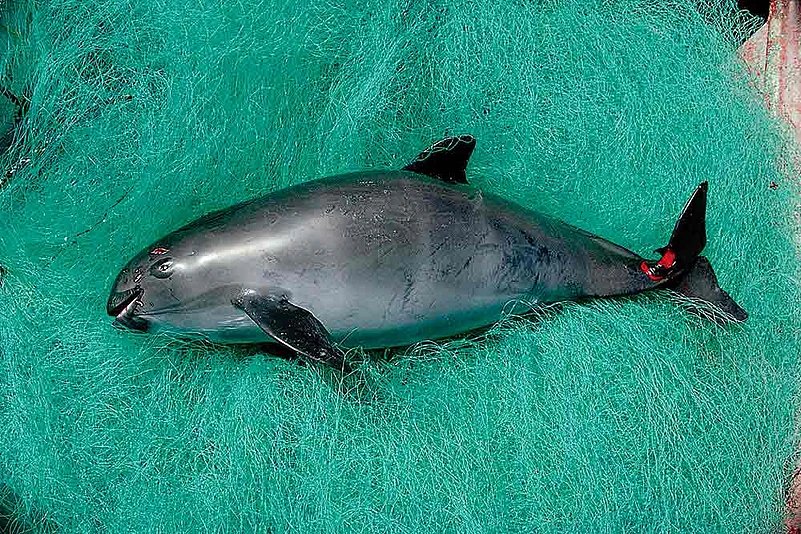According to a recent article, “Today, the Gulf of California remains a productive if diminished fishery, contributing 54% of Mexico’s 2.2 million tonnes of commercial seafood in 2017, according to Mexico’s Secretariat of Agriculture and Rural Development. But those numbers belie a bitter struggle now underway — one that has lawless poachers, economically strapped fishermen, international conservation groups, and feckless regulators squaring off over the value and purpose of this blue expanse.” The issue of contention lies around vaquita marina, “a captivating but rarely spotted species of porpoise”, which is found in the northern reaches of the Gulf, and of which only 20 remain. The idea, of course, is to save them.
To do so, and under pressure from environmentalists, Mexico initially curtailed and then banned fishing in the area, with a single exception. However, the Gulf waters are home to the totoaba, a silver fish that can grow to more than six feet and weigh 220 tonnes, and is heavily in demand, especially in China, for its swim bladder. The dried gas-filled bladder, which allows the fish to swim, is sold for thousands of dollars for its aphrodisiac and healing powers. Hence, the ban affected the local fishing communities, which caught totoaba, and even exported it earlier. It attracted the poachers, , “despite the military and non-profit patrols that include drones and speedboats”.
Hence, the conservationists continued to blame governments for their inability to save the vaquita. “Over the past 20 years, we’ve seen Mexico continue to propose new programmes to save the vaquita, and over and over we’ve seen exactly the same thing: that those have failed due to lack of enforcement,” said Sarah Uhlermann, international program director at the Centre for Biological Diversity. Her group estimated that 1,400 tonnes of fish and shrimp caught with the banned gillnets were exported to the US. Hence, along with others, it sued the US administration, which resulted in the ban on shrimp imports from that region. There are concerns that the ban may extend to entire Mexico.


























